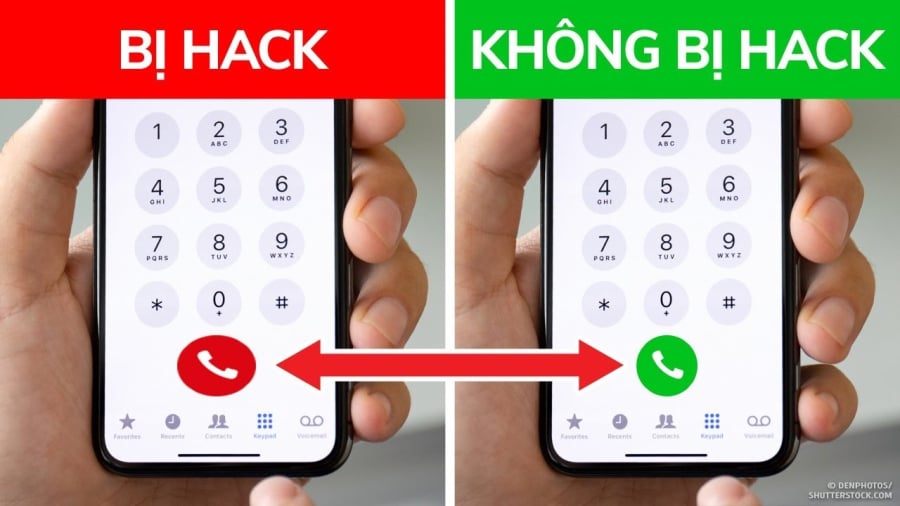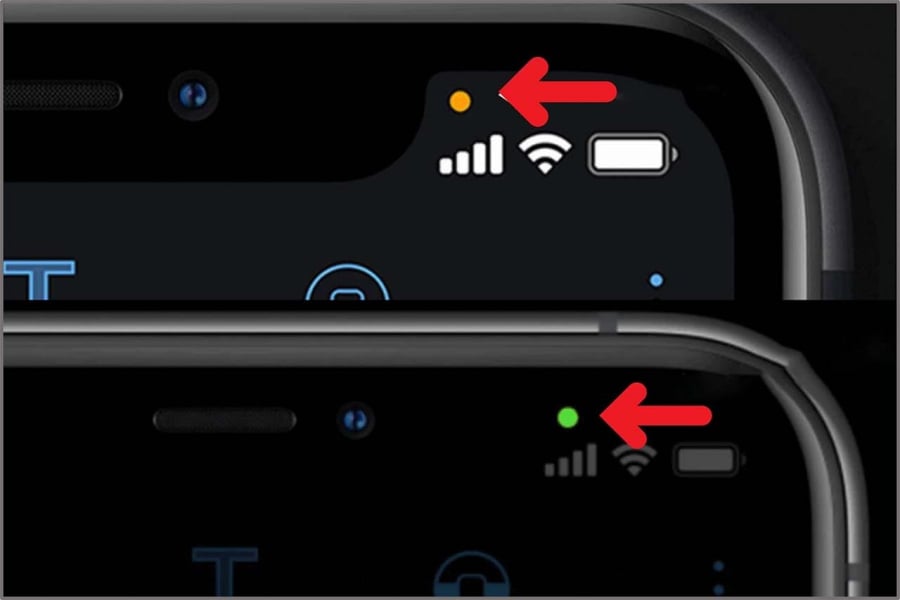If you suspect that your phone may be under surveillance, review and apply the security measures outlined below.
Can someone track my phone without my knowledge?
Yes, it is possible for someone to track your phone without your consent. There are methods and techniques available to discreetly track mobile phones. Here are some ways people can track your phone without your knowledge:
Tracking Applications: There are numerous tracking apps available, such as parental controls or device recovery apps. However, if someone gains access to your phone and installs such an app without your consent, they can monitor your location, messages, and other activities. These apps often run in the background, making them hard to detect.
GPS Technology (Global Positioning System): If an attacker gains access to your device or knows the credentials for your linked account, they can initiate remote GPS tracking to monitor your activities.

There are multiple ways to determine if someone is tracking your phone.
Exploiting Vulnerabilities: Cybercriminals can exploit security vulnerabilities in mobile operating systems. Once inside, they can track information from your phone.
Mobile Triangulation: Mobile triangulation can be used to estimate the location of a phone even without GPS access. By analyzing the signals between your phone and nearby cell towers, someone can approximate your location.
IMSI (International Mobile Subscriber Identity) Numbers: Both law enforcement agencies and malicious actors use devices like Stingray phone trackers or IMSI catchers to intercept and track mobile phone signals. These devices mimic legitimate cell towers, forcing nearby phones to connect to them, thereby leaking the phone’s location and other data.
Spyware and Malware: Phishing emails, malicious downloads, or infected websites can install spyware or malware on your device without your knowledge. Once installed, these programs can collect information, including your location, unbeknownst to you.
Social Engineering Techniques: Attackers may use social engineering tactics to trick you into granting them access to your phone. They could pose as technical support staff and convince you to provide them with remote access.
How can I protect my phone from being tracked?
Protecting your phone from unauthorized tracking is of utmost importance. To strengthen your device’s defenses and safeguard your privacy, stringent security measures are necessary:
Regular Updates: Keep your operating system and installed applications up to date. These updates not only introduce new features but, more importantly, include critical security patches.
Strong, Unique Passwords: Enhance your phone’s security with strong, unique passwords for all your accounts. This way, you can establish a robust barrier against unauthorized access.

To determine if your phone is being tracked, you can employ various methods and techniques.
Be Cautious When Downloading Apps: Exercise caution when downloading apps, especially from unverified sources. Stick to reputable app stores such as the Google Play Store and Apple’s App Store. These platforms employ rigorous screening processes to minimize the risk of malware infiltrating your device.
Monitor App Permissions: Actively monitor app permissions on your phone. Carefully review which apps can access sensitive data, such as your location or contacts. Immediately revoke permissions from apps that don’t legitimately require such access. This reduces data exposure and minimizes the risk of being tracked.
Customize Privacy Settings: Utilize your phone’s privacy settings to restrict location sharing and limit app and service access. Consider granting permission for precise location access and configuring location settings to “While Using the App” (iOS) or “Only When the App is in Use” (Android) for apps that don’t require continuous tracking.
How do I know if someone is tracking my phone?
To determine if someone is tracking your phone, you can look for signs and employ various methods to detect potential tracking activities.
Here is a step-by-step guide on how to know if your phone is being tracked:
– Check Battery Usage: Abnormal and rapid battery drain could indicate hidden tracking software running in the background. Review your phone’s battery usage statistics to identify any apps consuming excessive power.
– Monitor Data Usage: Tracking apps often use data to transmit information to the person monitoring your phone. Keep an eye on your data usage to detect sudden spikes or abnormal consumption.

Your phone can be tracked through spyware or third-party tracking apps installed from unverified sources.
– Inspect Installed Apps: Regularly review the list of installed apps on your phone. Look for any unfamiliar or suspicious apps that you did not install yourself.
– Review App Permissions: Check the permissions granted to each app on your device. Ensure that apps only access the information they genuinely need. Suspicious apps may request unnecessary permissions.
– Watch for Abnormal Behavior: Stay vigilant for any abnormal behavior on your phone, such as unexpected pop-up notifications, unusual delays, or slow performance. Other factors include unexplained outgoing calls or text messages.
How can I tell if my phone is being tracked?
To determine if your phone is being tracked, you can employ various methods and techniques.
Conduct Security Checks: Keep your phone’s operating system, security software, and apps up to date. This helps patch known vulnerabilities that tracking software might exploit.
To prevent your phone from being tracked, consider the following security measures:
Use Anti-Malware and Anti-Spyware Apps: Install reputable anti-malware and anti-spyware apps on your device. Regularly scan your phone to detect suspicious software.
Check for Unknown Network Connections: Inspect the list of connected devices on your home Wi-Fi network. If you notice an unknown device connected, someone might be intercepting your data.
Scan for Undetected or Hidden Apps: Use security apps to scan your device for unidentified or hidden apps that could be tracking you.
Examine Unnecessary Physical Access: If you suspect someone with physical access to your phone is tracking you, look for signs of tampering or unauthorized installations. Change your mobile phone password for future use.
Contact Your Mobile Service Provider: Reach out to your mobile service provider to inquire about any unusual activity on your account, such as unauthorized location tracking.
Perform a Factory Reset (as a last resort): If you cannot identify or remove tracking software, consider performing a factory reset on your device. If you notice a significant improvement in your phone’s performance after the reset, it’s likely that your phone was being tracked in some way.
Preventing phone tracking on iPhone and Android involves a combination of privacy settings and security practices.
How do I prevent my phone from being tracked on iPhone and Android?
Preventing phone tracking on iPhone and Android involves a combination of privacy settings and security practices. Here are specific steps for each platform:
– For iPhone Users:
Disable Location Services: Go to Settings > Privacy > Location Services, and turn off location access for apps that don’t require it.
Review and Revoke App Permissions: Continuously review and revoke unnecessary permissions for apps.
Enable Find My iPhone: Turn on this feature to locate your device if it’s lost or stolen.
– For Android Users:
Manage App Permissions: In Settings, go to Apps & Notifications > App Permissions to control which apps can access your location, camera, and other sensitive data.
Use a VPN: A virtual private network can hide or change your location and data.
Install Anti-Tracking Apps: Explore apps designed to detect and block tracking on Android devices.





































